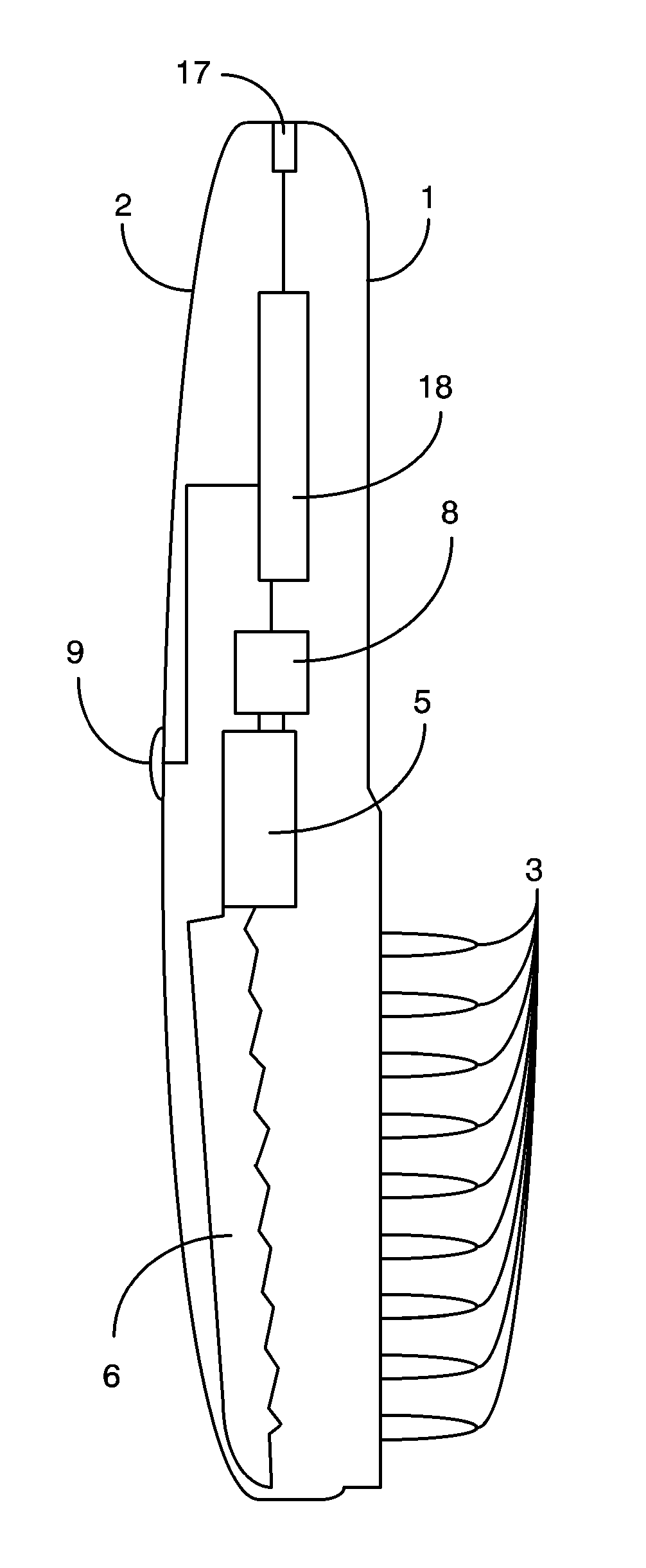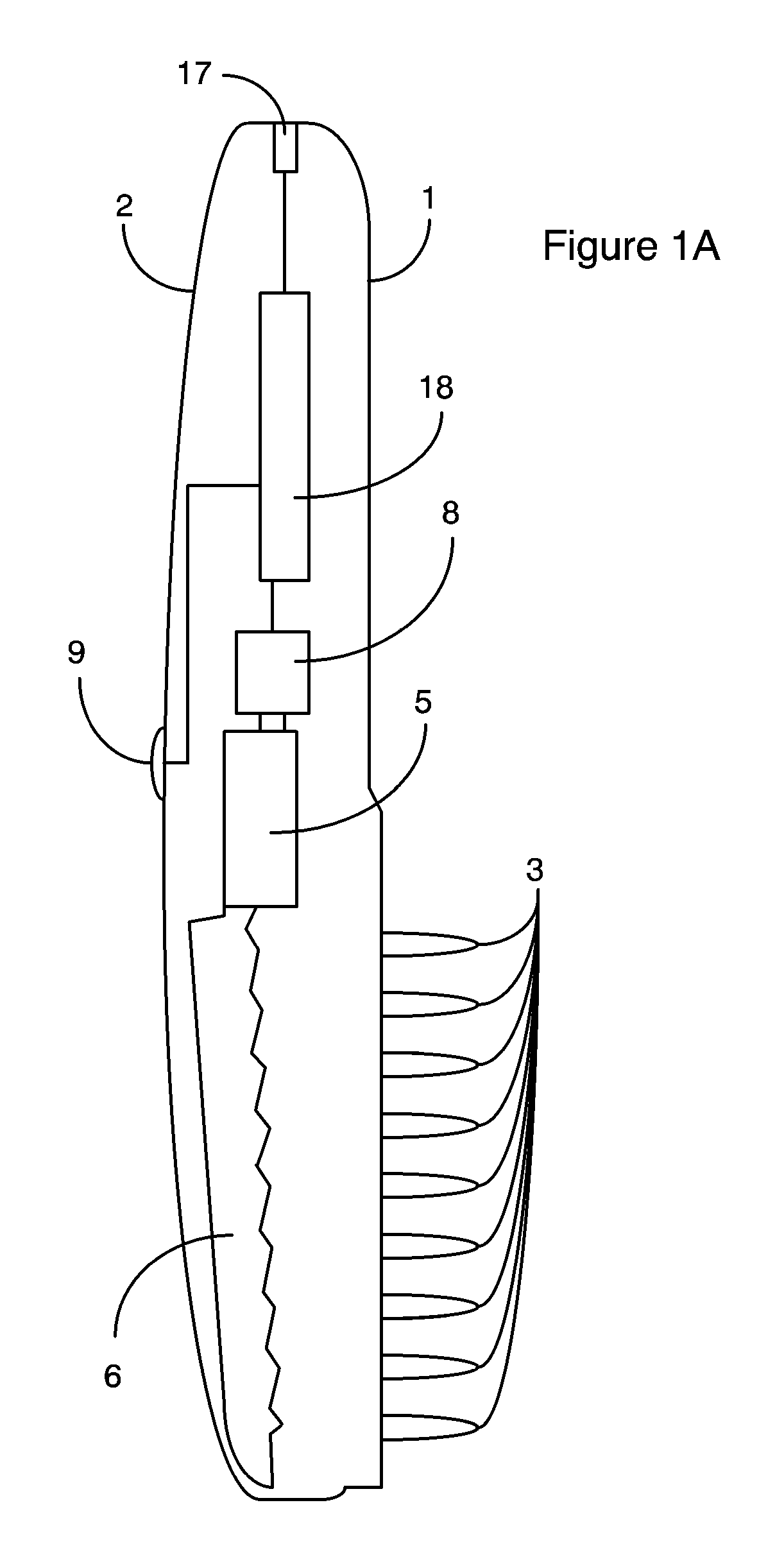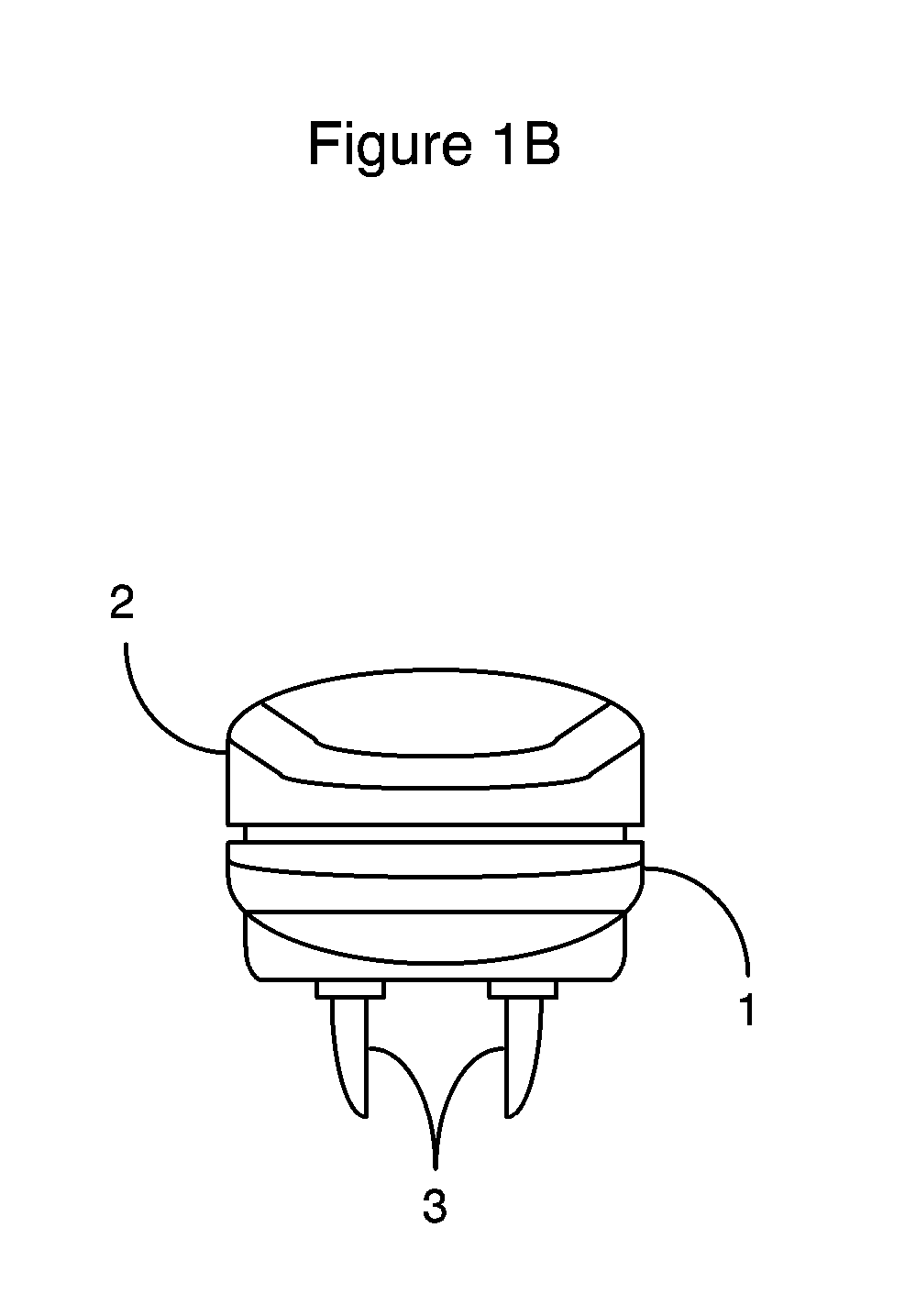Apparatus and Method for Stimulating Hair Growth
a technology of hair growth and apparatus, applied in the field of apparatus and treatment of hair loss, can solve the problems of distressing and affecting the appearance of individuals, hair loss has traditionally been a problem, and individuals appear older than they are, and achieve the effect of stimulating human hair growth
- Summary
- Abstract
- Description
- Claims
- Application Information
AI Technical Summary
Problems solved by technology
Method used
Image
Examples
Embodiment Construction
[0048] Prior to a detailed discussion of the figures, a general overview of the system will be presented. For ease of discussion, the term “scalp” will be used to describe the conventional definition which describes the hair covered portion of skin on the user's head, and in addition, any skin surface where hair is desired to be grown (e.g., a beard, etc). Likewise, the term “teeth” is used to refer to any projections which extend from the body of the device toward the user's scalp, and which are designed to part the user's hair in front of a trailing light beam. The shape of the teeth is not important as long as they accomplish the goal of parting the user's hair.
[0049] In the preferred embodiment, the teeth are also intended to be non-light carrying teeth, which travel in front of, or behind, an associated light beam which may be laser light, non-coherent light, or a combination thereof. In particular, the preferred embodiment envisions non-light carrying teeth which are substant...
PUM
 Login to View More
Login to View More Abstract
Description
Claims
Application Information
 Login to View More
Login to View More - R&D
- Intellectual Property
- Life Sciences
- Materials
- Tech Scout
- Unparalleled Data Quality
- Higher Quality Content
- 60% Fewer Hallucinations
Browse by: Latest US Patents, China's latest patents, Technical Efficacy Thesaurus, Application Domain, Technology Topic, Popular Technical Reports.
© 2025 PatSnap. All rights reserved.Legal|Privacy policy|Modern Slavery Act Transparency Statement|Sitemap|About US| Contact US: help@patsnap.com



